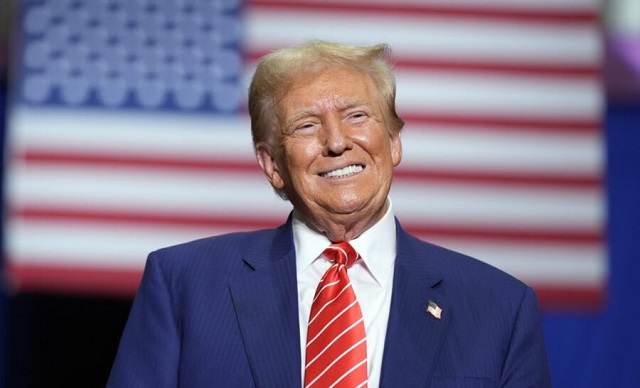
In the US, Democrats tend to misunderstand how most of the public view them and underestimate the strength and durability of their opponents’ appeal
COMMENT | SHLOMO BEN-AMI | During the just-concluded US election campaign, I did not follow opinion polls, pore over “evidence-based” predictions, or read “expert” analyses of the race. As soon as I saw some of the most famous faces in American pop culture – from Taylor Swift and Beyoncé to Oprah Winfrey and Bruce Springsteen – campaigning for Vice President Kamala Harris, I knew she was going to lose.
This might seem counter-intuitive: these celebrities have millions of fans, so it stands to reason that they can influence millions of voters. But in an election framed by one side as a battle pitting “the people” against “the elites,” associating oneself with ultra-wealthy celebrities – people who live in gated mansions, fly in private jets, and walk down public streets flanked by security guards – is a losing strategy. The last thing the people want, as they struggle with high prices and fear for their futures, is for elites to tell them how to vote.
This sentiment is not unique to the United States. Israel’s liberal left has always enjoyed the overwhelming support of musicians, artists, and filmmakers; its representatives always receive the endorsement of the liberal Haaretz newspaper. And it has not had an electoral victory in a generation. As a friend once quipped: If you want to win an election, make sure that Haaretz is against you. Couldn’t Donald Trump say the same about The New York Times?
Many of the 73 million Americans who voted for Trump in this election were motivated by legitimate grievances over issues like economic insecurity and immigration. One can criticize their apparent willingness to accept Trump’s misogynistic and otherwise offensive rhetoric, his habit of abandoning allies and trampling on democratic norms, and his obvious authoritarian ambitions. One might consider it objectionable to cast a vote for a candidate who, after losing the last election, incited a mob of his supporters to march on the US Capitol to disrupt the certification of the results. But whether or not Democratic leaders like these voters’ priorities, they probably should not disparage large swaths of the electorate, say, by calling them “deplorables,” as Hillary Clinton did during the 2016 campaign, or implying that they are “garbage,” as Joe Biden did last month.
Again, the US is not unique in this regard. In Israel – where, as in America, elections tend to be part of an ongoing culture war – the late comedian Dudu Topaz’s disparaging comments in 1981 about supporters of the right-wing populist Likud party is thought to have driven swing voters to back Likud leader Menachem Begin, rather than Labor party leader Shimon Peres. In 2015, it was writer Yair Garbuz who helped galvanize Binyamin Netanyahu’s voters by calling them “kissers of talismans and worshippers of the graves of saints.”
In any case, if a failed insurrection is not enough to turn people against Trump, are celebrity endorsements really going to work? This brings us to another shortcoming of the left: a tendency to underestimate the strength and durability of their opponents’ appeal. When Likud emerged in 1977, the left viewed it as a blip, incapable of lasting. Today, Likud’s Netanyahu is the longest-serving prime minister in Israel’s history. In America, the Trump phenomenon, widely dismissed in 2016 as a fluke, now looks like a persistent trend.
Despite his inflammatory rhetoric and utter lack of regard for the truth, Netanyahu has enjoyed the steadfast support of a large share of working people, religious conservatives, and other groups for whom “progressive” values, from cooperation and compromise to gender equality, are anathema. The same is true for Trump – the first Republican to win the popular vote in two decades.
Despite being wealthy and privileged, both Trump and Netanyahu present themselves as uniquely qualified to challenge the out-of-touch liberal elites and their allies, not least the mainstream media. The left might see through their claims to act in the people’s interest, but this is no reason to assume that voters will, too.
The Democrats’ failure to mount an effective challenge to Trump will have far-reaching consequences. For starters, Trump’s victory will have a galvanizing effect on similar authoritarian projects globally. The world is locked in an ideological battle between autocratic regimes – think China, Iran, North Korea, and Russia – and democracies. If the democratic camp is to prevail, US leadership is essential. Under Trump, such leadership is uncertain.
For example, Trump seems prepared to abandon Ukraine. There is reason to think that he might start by calling for freezing the front lines. But, while this could open the way for peace negotiations with Russia, it also summons the specter of the Munich Agreement, under which Britain and France sacrificed part of Czechoslovakia to Adolf Hitler in 1938. Forcing Ukraine to cede large amounts of territory to Russia will not bring “peace for our time” any more than giving the Sudetenland to Nazi Germany prevented Hitler from occupying the rest of Czechoslovakia six months later and starting World War II six months after that.
Such a scenario would be particularly catastrophic for Europe, which is unprepared to carry the burden of Ukraine’s war effort on its own. Making matters worse for Europe, Trump’s frequent criticism of NATO – including (not unreasonably) European members’ failure to meet their military-spending targets – has raised doubts about his commitment to the Alliance. He might even impose tariffs on imports from the European Union, as he did during his first presidency, in a bid to protect American industry.
Trump’s isolationist “America First” approach also has implications for Taiwan, to which he is unlikely to offer the kinds of defense commitments Biden has provided. That would be good news for China, though Trump will otherwise maintain his confrontational approach to the country.
Among those celebrating Trump’s victory are Netanyahu and his allies, who expect to be given free rein to continue their colonization project in the Palestinian West Bank. But they might soon find that Trump’s drive to reduce America’s involvement in foreign affairs also applies to the Middle East.
Notwithstanding his incendiary rhetoric, Trump has shown no inclination toward war. It is thus likely that he will press Israel to end the fighting in Gaza and Lebanon, even if it means that Netanyahu has to dissolve his precious coalition of extremists who fantasize about building a new Middle East order by waging war with Iran. Drawing the US into such an enterprise has long been Netanyahu’s dream. But, unlike Biden, Trump will not sacrifice himself politically in the name of radical Zionism.
****

Shlomo Ben-Ami, a former Israeli foreign minister, is Vice President of the Toledo International Center for Peace.
Source: Project Syndicate.
 The Independent Uganda: You get the Truth we Pay the Price
The Independent Uganda: You get the Truth we Pay the Price



